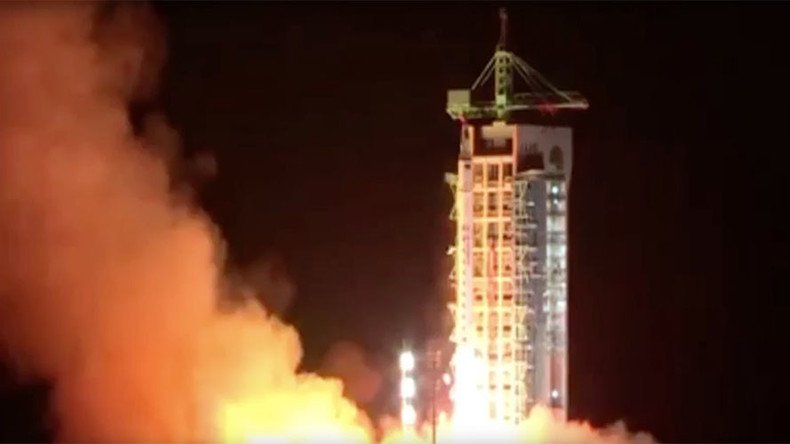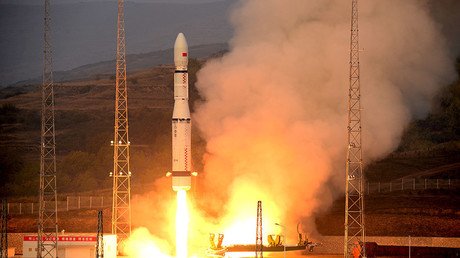China launches new retrievable satellite with onboard tests on mouse embryos & crude oil (VIDEO)

China has successfully launched a retrievable satellite into space. The probe is expected to carry out 19 experiments, including one on the development of mouse embryos in microgravity and one shedding light on the nature of oil reservoirs.
The satellite, known as the SJ-10, was launched from a space craft at the Jiuquan Satellite Launch Center in northwestern China's Gobi Desert on Wednesday. According to Xinhua, the mission hopes to carry out experiments in the field of microgravity fluid physics, microgravity combustion, space material, space radiation effects, microgravity biological effects and space bio-technology.
The experiments investigation how radiation affects genetics are being conducted to try and make space travel safer in the future, while mouse embryos will be observed to see how they develop, as they may give scientists clues about whether it would be possible for humans or animals to reproduce in space.
“The recoverable satellite is a useful and efficient tool for microgravity experiments, compared to space stations and research rockets,” said physicist Hu Wenrui, chief scientist of SJ-10 and a member of the Chinese Academy of Sciences, Xinhua reports.
Wenrui also mentioned that the team hopes to conduct some groundbreaking experiments, which he hopes could lead to new breakthroughs in academic research.
"All experiments conducted on SJ-10 are completely new ones that have never been done before, either at home or abroad," he said.
The European Space Agency (ESA) is also taking part in the mission and has also teamed up with Chinese and French oil giants to launch containers of highly pressurized crude oil into space.
Sending crude oil into space - launching tonight 18:00 UTC from Jiuquan space centre, #Chinahttps://t.co/t4xrjsitwFpic.twitter.com/sAlLb0ydiW
— ESA Operations (@esaoperations) April 5, 2016
Scientists are hoping the mission will deepen their knowledge and understanding of crude oil reservoirs located eight kilometers underground in order to make it possible to tap into untouched reserves.
“Imagine a packet of cornflakes – over time the smaller flakes drop to the bottom under gravity. On a molecular scale this experiment is doing something similar but then looking at how temperature causes fluids to rearrange in weightlessness,” explained ESA’s Olivier Minster.
The SJ-10 is the second of four scientific satellites which will be launched under a Chinese Academy of Sciences (CAS) program.
The first mission took place in December, when China launched its first telescope into space. It will look for signs of dark matter, a type of substance invisible to the naked eye, but hypothetically constituting the whole universe’s mass.
The satellite, nicknamed ‘Wukong’ after a character from Chinese legend, was given the task of keeping track of the direction, energy and electric charge of particles in space. Scientists believe that from space it will be easier for the instruments to detect something that may subsequently help them crack the mystery that surrounds dark matter.
“This is an exciting mission. If dark matter annihilates, as some theories predict, DAMPE has an opportunity to detect dark matter annihilation products,” David Spergel, a theoretical astrophysicist from Princeton University, said, according to Science magazine.













